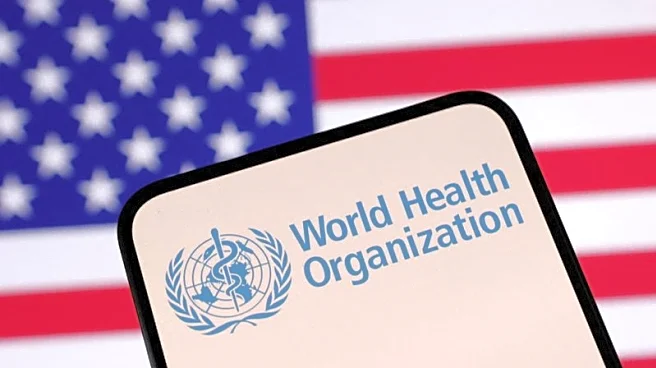What's Happening?
Colorectal cancer rates are increasing among individuals under 50, yet awareness remains low due to cultural stigma surrounding discussions of bowel health. Laurie Abraham, a writer who experienced colon cancer, shared her story in an essay for The Cut, highlighting the embarrassment associated with the disease. Dr. Kimmie Ng from the Dana-Farber Cancer Institute emphasizes the need to overcome cultural shame to improve funding and research for colorectal cancer. The discussion on NPR's 'It's Been a Minute' podcast explores the societal barriers that hinder open conversations about this growing health issue.
Why It's Important?
The rise in colorectal cancer among young people is a concerning trend that demands attention from healthcare providers, policymakers, and the public. Cultural stigma around discussing bowel health contributes to a lack of awareness and funding for research, potentially delaying advancements in treatment and prevention. Addressing these barriers is crucial for improving early detection and outcomes for young patients. Increased awareness and funding could lead to better screening programs and more effective therapies, benefiting both patients and the healthcare system.
What's Next?
Efforts to raise awareness and reduce stigma around colorectal cancer are essential for increasing funding and research. Advocacy groups and healthcare professionals may focus on educational campaigns to encourage open discussions about bowel health. Additionally, policymakers could prioritize funding for research into early detection and treatment options for young patients. As awareness grows, it is likely that more resources will be allocated to address this pressing health issue.
Beyond the Headlines
The cultural stigma surrounding colorectal cancer reflects broader societal attitudes towards discussing bodily functions and health issues. Overcoming these barriers requires a shift in public perception and increased education on the importance of early detection and treatment. By fostering open conversations, society can better support individuals affected by colorectal cancer and reduce the shame associated with the disease.











